This year, mountain towns in the American Southeast were not bonded by ski races, clinics or early season festivals. Instead, they were brought together by a more somber cause: Hurricane Helene.
Almost two months after Helene hit land, ski resorts in North Carolina are recuperating from flooding, blowdowns and road closures that will last into winter. Those lucky enough to experience little to no damage sought to help their communities.
“There were just a few areas that it washed in like a drain pipe that we needed to fix. But throughout the years we’ve invested a lot on slope drainage that helped manage that huge amount of water pretty well,” says Drew Stanley, Marketing Director for Appalachian Ski Mountain in North Carolina. “But overall, it was very, very minimal, especially compared to some of the surrounding community. We are sort of carrying on as normal.”
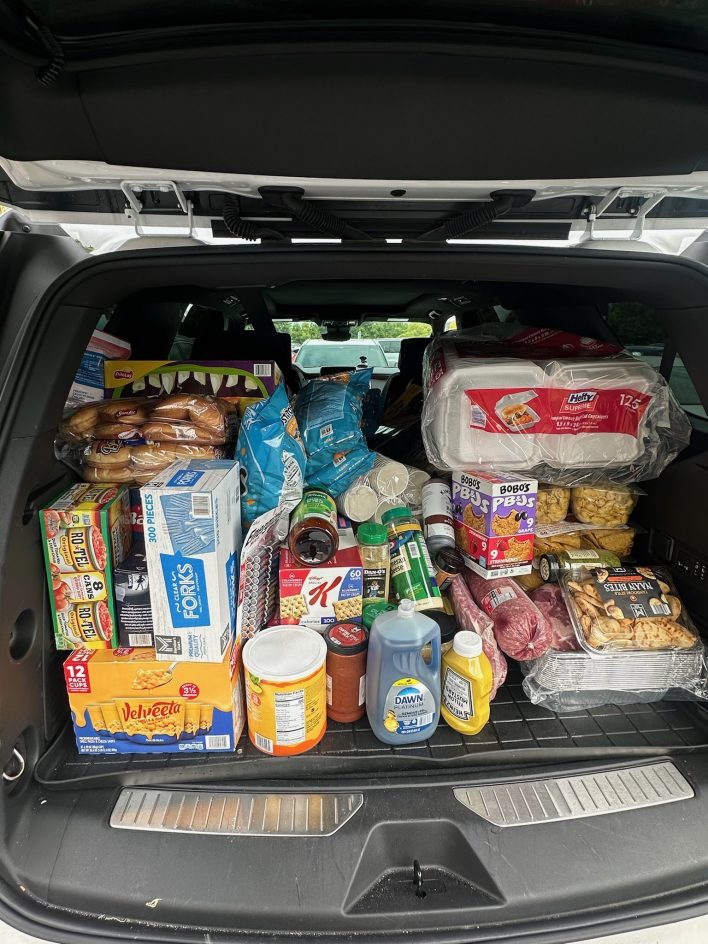
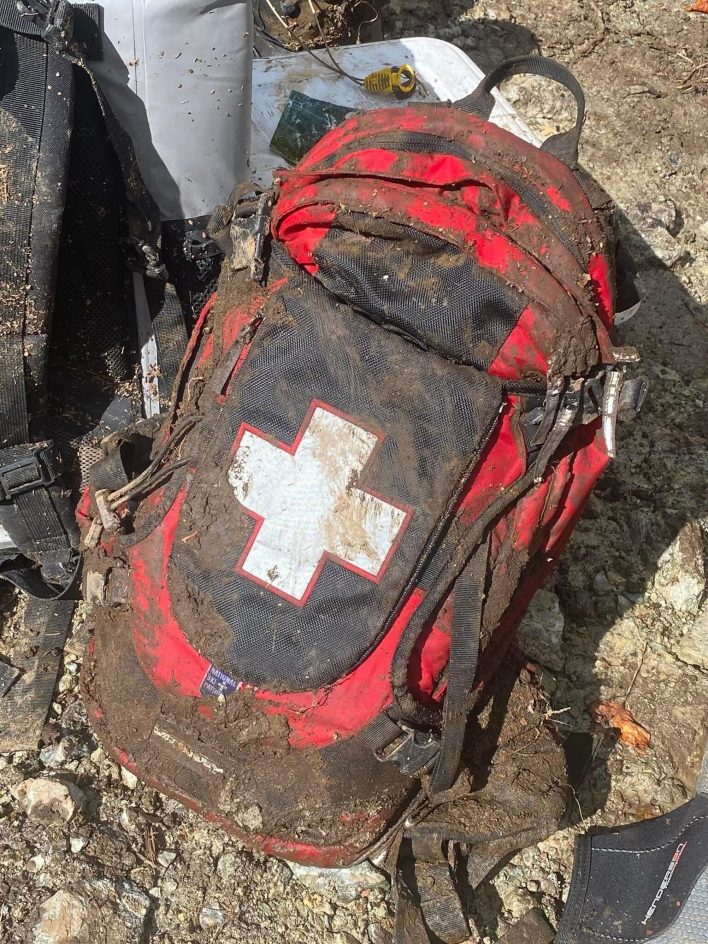
In Boone, North Carolina, around 8 miles from Appalachian Ski Mountain, flooded houses, sinkholes and caved-in roads became the norm.
“The community was really affected,” says Stanley. “So, we sort of spent a lot of time trying to brainstorm the best way to help other people. And that started with using some of our equipment to help the surrounding roads nearby, helping with clearing trees.”
Stanley believes the main takeaway from such a disaster is the community itself. “I think just, you know, having everybody come together and work together has been real eye opening. Inspiring.” For now, Appalachian Ski Mountain is serving as a backbone of the local community, providing donations for flood relief and aiding their staff and ski patrol.
The mountain is currently running a preseason sale, which is also a fundraiser for families in need. For every donation they receive, they’re matching it with proceeds from the sale. Additionally, Burton donated two snowboards signed by riders from North Carolina to help raise money. Stanley continued to reiterate that they are focusing on recovery for their staff most of all.
A ski patroller for Appalachian Ski Mountain, Chris King, and his wife, Angela King, are some of the many whose houses were drowned by the hurricane. Since losing their home a month ago, they have relocated with their family four times.
“There is nothing like this sort of event happening that we have had to live in, until now,” says Angela. “It truly is just day by day, it’s hard to see the big picture. We’ve been denied insurance twice.”
Angela learned to ski at Appalachian Ski Mountain as a kid, racing on their ski team. Now, she works as a ski instructor. “They have been amazing. They were one of the first people to reach out and say, ‘We’re going to help you, we’re going to figure this out,’” she says.
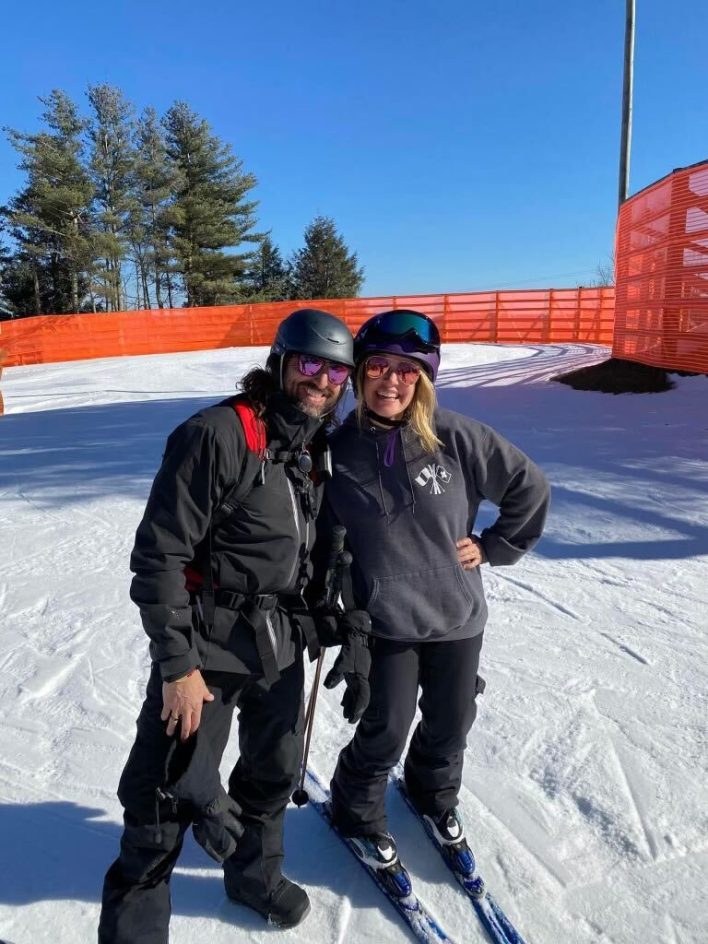
In the first few weeks after the storm, the mountain had set up a workday for the Kings with close to thirty patrollers coming to help clear fallen trees and debris from their house. “That whole ski community has shown up to help us, which is just incredible,” she says.
On top of the flooding, Chris has been dealing with cancer over the last couple of years. Despite his condition, he has remained loyal to the ski community.
“He just had his first treatment a week ago and tonight he is going to the start of the ski patrol refresher,” says Angela proudly. “And so even with a catheter in, he is going to be there.”
But Appalachian Ski Mountain wasn’t the only resort to support local families. This generosity continued across the entire state. Updates from Cataloochee Ski Resort in Maggie Valley, North Carolina, made sure their staff and families were safe. After minimal damage, they are on track to open by mid to late November.
Hatley Pointe Boutique Mountain Resort in Mars Hill, North Carolina, has been active in their community too.
“The week after the hurricane, we provided dinner for the entire community, open invite as well,” says Sarah Woodard, Marketing and Retail Specialist for Hatley Pointe.
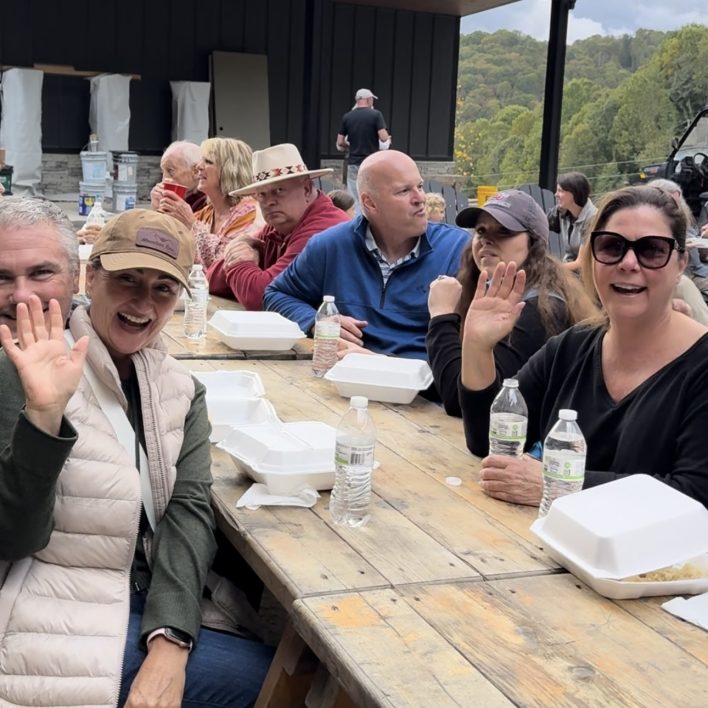
Many people in the community are very “hands-on” Woodard pointed out, sharing that people immediately started clearing trees with chainsaws and fixing landslides on roads after the storm.
“It was a beautiful thing to watch,” she says.
In addition to supporting with community dinners, Hatley Pointe is planning to run a coat drive this winter and provide various monetary donations to those still affected by the aftermath of Helene.
“It is a perfect time to come together and provide a place of solace and comfort as we enter this season of healing and rebuilding,” Woodard says. “And I think the recreational activities can be seen as a positive during this time, just to provide that sort of getaway and be a place where they can come here, have a good day with their family, and just experience some normalcy.”
Normalcy is a buzz word for mountain communities exhausted by the storm. Locals throughout Appalachia seem to be hoping for things to just return to normal, and fresh tracks on opening day or drinking hot chocolate in the lodge at the resort could be just the thing.
Many schools, including those in Johnson City and Madison County near Hatley Pointe, have been affected by flooding and will remain closed until February, halting recreational sports and clubs. A man assisting with the media at Hatley Pointe expressed his excitement about getting season passes for his family, knowing skiing and snowboarding will provide much needed time outside when they’re not in school.
“He was just like ‘We’re so excited to have this outlet to kind of get their energy out and get out of the house during the flood,’” recalls Woodard.
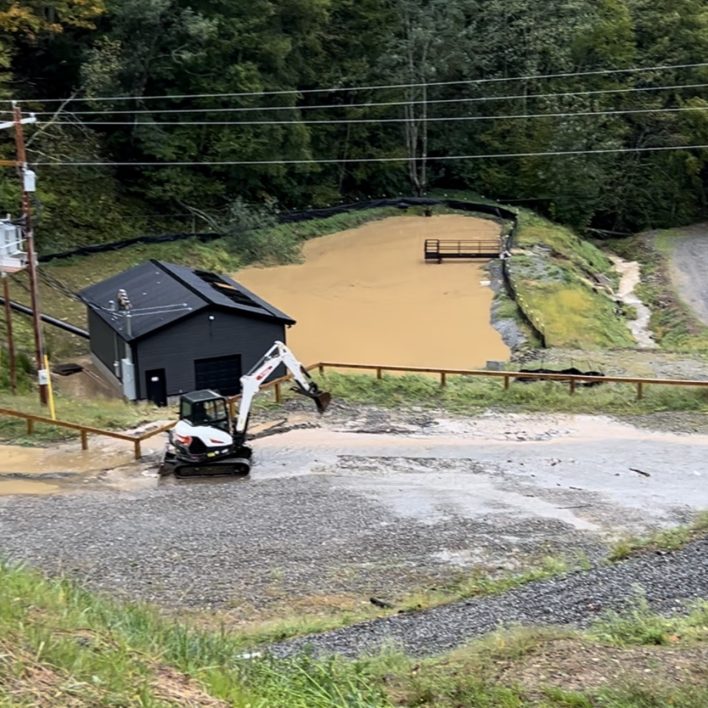
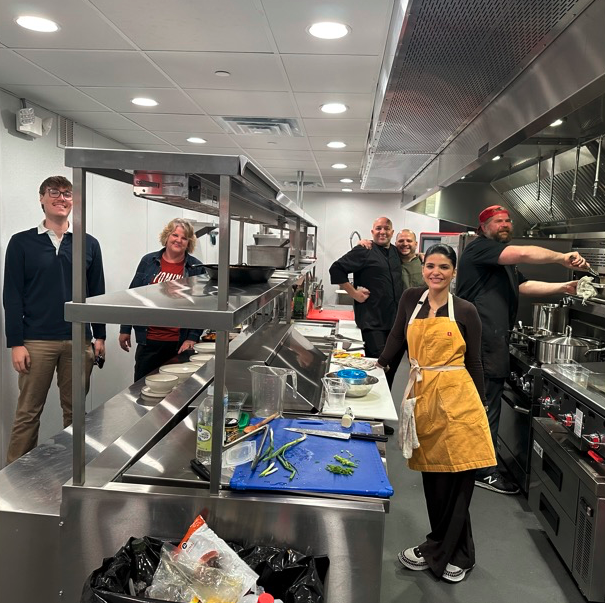
But even as they search for normalcy, many people’s lives are still a far cry from it.
If you’re planning to go skiing or snowboarding this winter, mountain resorts are reminding riders to be patient, as road closures and repairs may cause delays. They’re also urging everyone not to forget the communities that are still recovering.
“Now that it’s also out of the media, a lot of people are just like, ‘Well, that was crazy. My normal life is not affected, so everything’s back to normal,’” Woodard says. “[Communities] are struggling, and their kids are not in school and they’re trying to figure out their job. They’ve lost their house, they’ve lost home videos from, you know, their kids who are in their twenties and they’ve lost their home videos from them being children.”
As these mountain communities continue to rebuild, this year promises a chance to replace memories of disaster with the fresh air, powdery turns and the warmth of community gathering.
King says people keep asking if her family will be at Appalachian Ski Resort this winter. “And our answer is always, ‘Of course we will, why wouldn’t we be?’”
If you’d like to support Angela and Chris King, they have set up GoFundMe pages for Chris’s cancer treatment and to help rebuild their home.
Editorial intern Kira Corasanti grew up in the Adirondack mountains where she developed a love for skiing and all things outdoors. A recent graduate of the University of Vermont, she’s passionate about storytelling, outdoor communities and the environment.










Related posts: